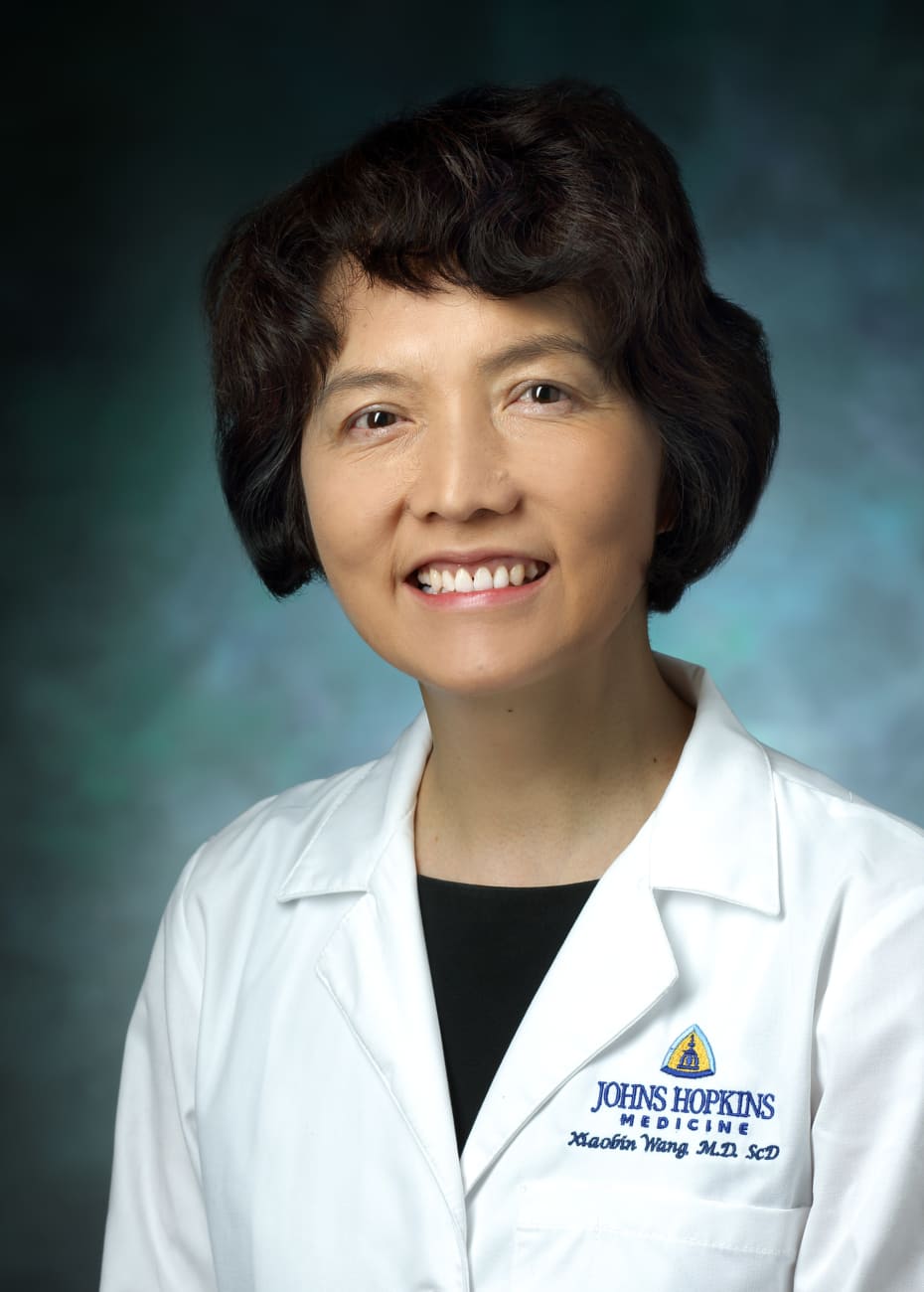
Some physicians work on the scale of minutes. For emergency room doctors and surgeons, every second counts. Other physicians take the long view. Johns Hopkins pediatrician Xiaobin Wang is one of those doctors.
“Some heroes save lives in an instant, others over a lifetime,” Wang says of the focus of her nearly three-decade career, which has improved clinical care for countless children at Johns Hopkins Children’s Center — and beyond.
While Wang maintains a clinical practice, her focus is largely on studying the macroscale health problems confronting the world today, namely chronic illnesses such as obesity, cardiovascular disease, diabetes, asthma, food allergies and autism. Most of these illnesses last for a lifetime and are difficult to treat. There are no quick fixes, and “the cost in financial and emotional terms is huge,” says Wang.
Wang’s research looks at the precursors of chronic disease during a critical developmental window — preconception and the fetal period — in order to help people avoid falling victim to chronic diseases later in life.
She is director of the Center on the Early Life Origins of Disease in the Department of Population, Family and Reproductive Health in the Johns Hopkins Bloomberg School of Public Health. She also holds a joint appointment at Johns Hopkins Children’s Center and the Johns Hopkins University School of Medicine. She is one of the pediatricians at Johns Hopkins who bridges public health with clinical medicine.
For nearly two decades, Wang has served as principal investigator on many studies funded by the National Institutes of Health and explored early life environmental, nutritional and genetic causes of chronic disease at key developmental milestones—from preconception to in utero, early childhood, adolescence and young adulthood.
Her influential body of research — which recently earned her election to the National Academy of Medicine — has improved our understanding of the causes of preterm birth, asthma, allergies, obesity, hypertension and neurodevelopmental disabilities and other adverse outcomes. It has been published in leading journals, including The Lancet, Journal of the American Medical Association and the New England Journal of Medicine.
A key part of Wang’s research has been the Boston Birth Cohort study of preterm birth and its consequences, which she launched in 1998 at Boston Medical Center. Now having enrolled more than 8,600 mother-child pairs, the Boston Birth Cohort is one of the largest and longest-prospective birth cohorts of urban, low-income, minority women and their children in the United States.
Among her many notable findings, Wang has shown that preterm babies are more prone to elevated insulin levels at birth that persisted into childhood, suggesting that preterm babies may be at future risk of type 2 diabetes, which usually does not surface until adulthood. She also showed that adequate folate in pregnant mothers can reduce the risk of obesity and high blood pressure in their offspring (while also sounding caution that too much prenatal folate may play a role in autism). Other studies have demonstrated that air pollution can have an effect on unborn children while still in the womb, and that such early environmental exposures can enhance the intergenerational link to obesity.
In her research, Wang strives to get beyond the typical “eat better, sleep better, exercise more” prescriptions for lifelong health and to identify root causes of chronic illness and underlying biological mechanisms. Such new insights help to inform precision prediction and preventive strategies, rather than “one size shoes for all,” she says.
“We realize that there’s a lot we can do with babies and children to promote health and build resilience. By doing so, we help ensure their lifelong health and the health of future generations,” she says. “That’s where I like to focus my attention.”


